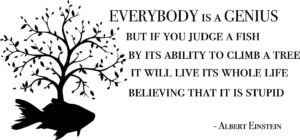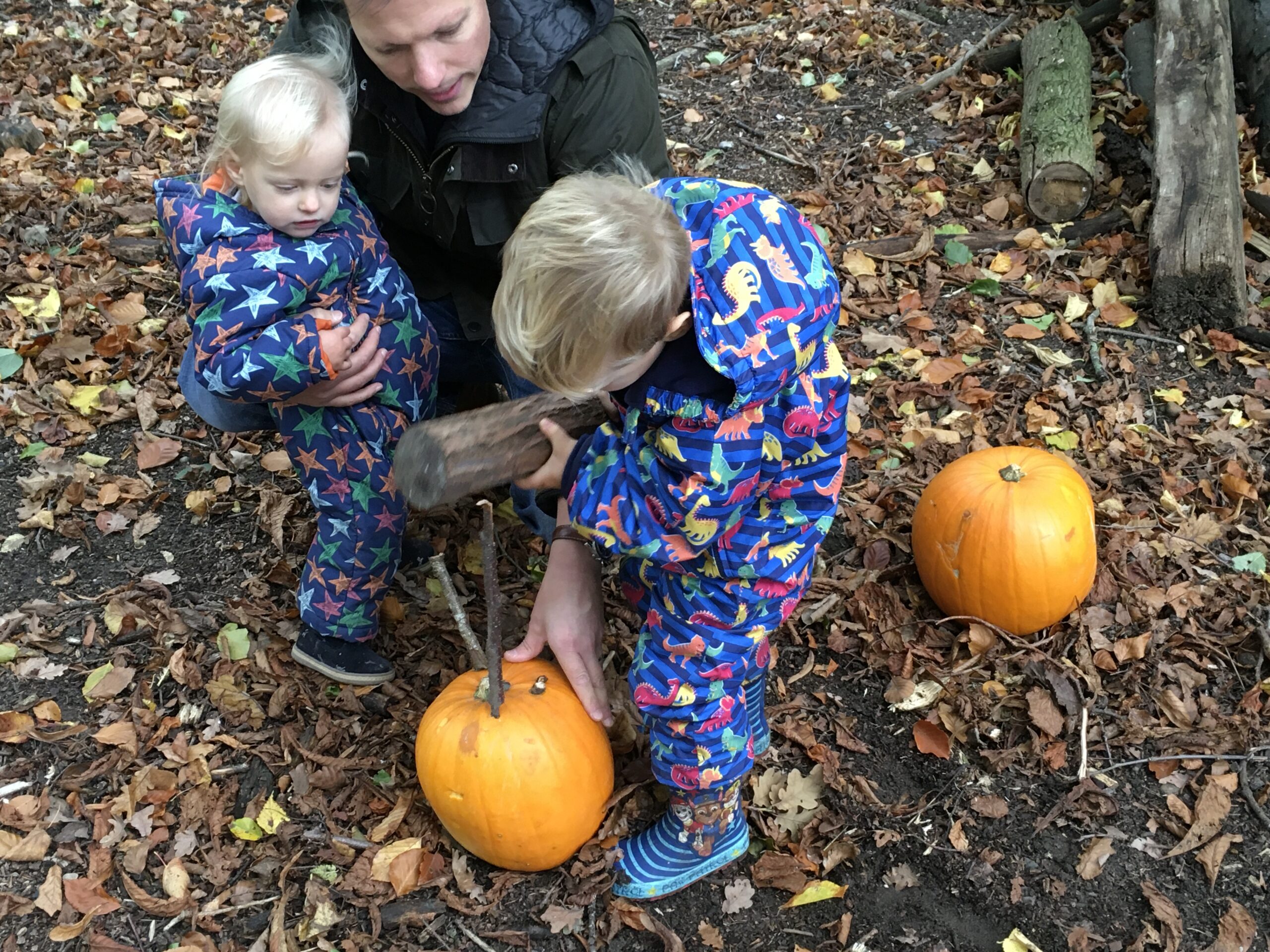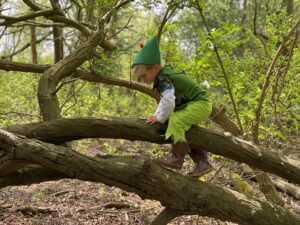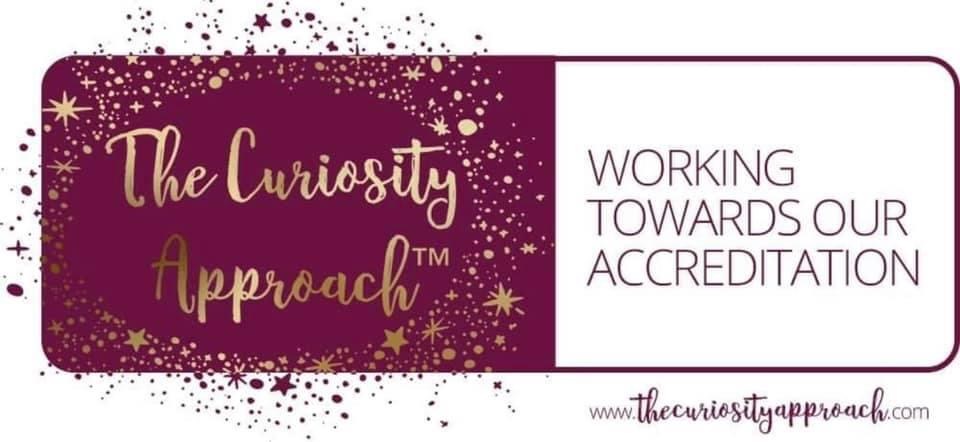Our nursery draws influence from several different approaches and learning theorists. We strongly value play as the highest form of learning and ensure that all children are treated with respect and trust. We encourage children to take risks, challenge themselves and to be intrinsically motivated to learn. Children deserve to be in a beautiful environment filled with awe and wonder, they deserve the space and time to explore their thoughts fully and to be surrounded by highly trained and caring educators who join in the learning with them.
The Forest School Approach
As qualified Forest School Leaders we are heavily influenced by this outdoor learning approach. We value building a chid’s self esteem and confidence in their learning and play.
The Curiosity Approach
We are currently working towards our Curiosity Approach Accreditation. This approach looks at promoting awe and wonder within the setting.
Learning Theorists who Influence our Approach
Many of the The Swiss humanitarians Johann Pestalozzi, Rudolf Steiner; the American Transcendentalists - Thoreau, Emerson and Alcott; the founders of “progressive” education - Francis Parker and John Dewey – and pioneers such as Maria Montessori, among others, all insisted that education should be understood as the art of cultivating the moral, emotional, physical, psychological and spiritual dimensions of the developing child. All saw contact with the 'real', and often the natural world as something essential to child development.
Ron Miller, a contemporary educationalist, sees a holistic way of thinking as one that encompasses and integrates multiple layers of meaning and experience rather than defining human possibilities narrowly. Every child is more than a future employee; every person’s intelligence and abilities are far more complex than his or her scores on standardized tests. In his book 'What are Schools for' (1997) he demonstrates that holistic education, grounded in a fundamentally different worldview, reflects very different assumptions about education and schooling than the common western view, integrating the emotional, physical, psychological and cognitive aspects of child development. 
Friedrich Frobel
Froebel was a German educator who invented the kindergarten. He believed that "play is the highest expression of human development in childhood for it alone is the free expression of what is in the child's soul." According to Froebel, in play children construct their understanding of the world through direct experience with it. His ideas about learning through nature and the importance of play have spread throughout the world.
Reggio Emilia
The Reggio Emilia approach to early childhood education views young children as individuals who are curious about their world and have the powerful potential to learn from all that surrounds them. Educational, psychological, and sociological influences are important factors to consider in understanding children and working to stimulate learning in appropriate ways. Reggio teachers employ strategies such as exposing children to a wide variety of educational opportunities that encourage self-expression, communication, logical thinking, and problem-solving.
Rudolf Steiner
The Steiner approach believes the first seven years are critical in determining the future wellbeing of children as this is when the foundations are laid for later learning and healthy development, including life-long physical, social, emotional, intellectual, and spiritual growth.
Proponents believe an atmosphere of loving warmth and guidance provide the optimal environment for healthy development and educators have a vital role in role-modelling and scaffolding a child’s natural urge to explore and experiment.
Maria Montessori
The Montessori Method is an approach to education which emphasizes individuality and independence in learning. Children are seen as inherently curious and learning driven. Thus, education is viewed as a process which should occur in harmony with the child’s individual developmental pace. It is a holistic approach emphasising all aspects of development, rather than on attaining specific pieces of information.
Jean Piaget
Piaget believed that children take an active role in the learning process, acting much like little scientists as they perform experiments, make observations, and learn about the world. As children interact with the world around them, they continually add new knowledge, build upon existing knowledge, and adapt previously held ideas to accommodate new information.
John Bowlby
Bowlby’s attachment theory discusses the importance of emotional bonds to caregivers. Reciprocal Interaction between child and adult is highly important as attachment in infancy affects relationships in later life. Good attachment gives positive social outcomes Such as self confidence, self esteem and the capacity to care for others.





